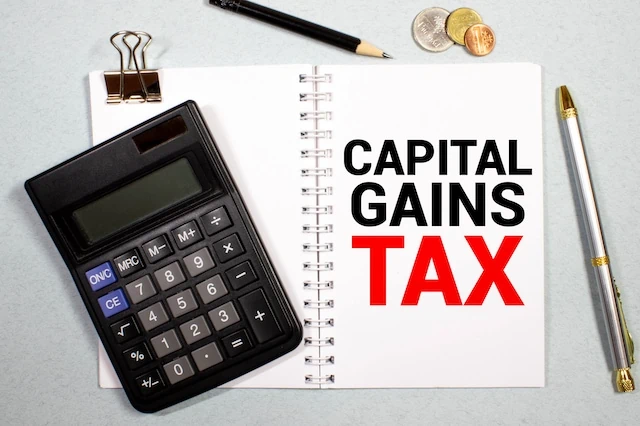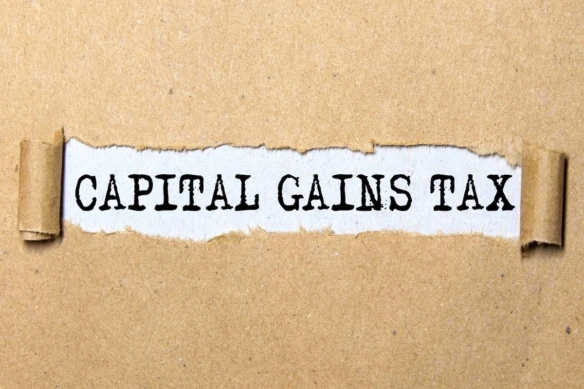Now that 2024 has come to a close, investors are starting to think about 2025’s investments. However, to get a clear picture of how your investment strategy might play out, you need to know the capital gains tax rates for 2025. Otherwise, without factoring in the taxes owed on your gains, you won’t know the true return on your investments.
But figuring out how much tax you’ll pay on capital gains isn’t always easy. That’s because capital gains are taxed at different rates depending on your filing status, your taxable income, how long you held the asset before selling it, and the type of property sold.
Fortunately, though, the IRS has already released the capital gains tax rate information investors will need for the 2025 tax year—and we have it all below. As a result, now you can start planning next year’s investments with more confidence.
Related: Capital Gains Tax: What You Need to Know
Long-Term Capital Gains Tax Rates for 2025

If you hold a capital asset for more than one year, any gain realized upon its sale or other disposition is considered long-term capital gain. If you have a net long-term capital gain after properly offsetting capital losses against your capital gains, that gain will be taxed at either a 0%, 15%, or 20% rate.
Which rate depends on your filing status and taxable income. However, the taxable income thresholds for each tax rate are adjusted annually for inflation. As a result, the rate you pay on your 2024 tax return might not be the same rate you pay for the 2025 tax year, even if your taxable income basically stays the same.
For the 2025 tax year, the long-term capital gains tax rates are as follows (dollar amounts are for your taxable income):
| Filing Status | 0% Tax Rate | 15% Tax Rate | 20% Tax Rate |
|---|---|---|---|
| Single | Up to $48,350 | $48,351 to $533,400 | $533,401 or more |
| Married Filing Separately | Up to $48,350 | $48,351 to $300,000 | $300,001 or more |
| Head of Household | Up to $64,750 | $64,751 to $566,700 | $566,701 or more |
| Married Filing Jointly; Surviving Spouse | Up to $96,700 | $96,701 to $600,050 | $600,051 or more |
Related: Standard Deduction Amounts for 2025
Short-Term Capital Gains Tax Rates for 2025

If you hold a capital asset for one year or less, any gain realized upon its sale or other disposition is treated as short-term capital gain. If you have a net short-term capital gain after properly offsetting capital losses against your capital gains, that gain will be taxed at the same “ordinary” income tax rate applied to your wages, tips, taxable Social Security benefits, withdrawals from traditional IRAs or 401(k) accounts, and other ordinary income.
There are seven ordinary income tax rates: 10%, 12%, 22%, 24%, 32%, 35%, and 37%. As with the long-term capital gains taxes, the specific ordinary income tax rate you’ll pay on any net short-term capital gain is based on your filing status and taxable income.
The short-term capital gains rates for the 2025 tax year are below (each table is based on your filing status). As with the long-term rates above, the IRS adjusted the income ranges each year to account for inflation.
2025 Short-Term Capital Gains Tax Rates for Single Filers
| Taxable Income | Tax Rate |
|---|---|
| Up to $11,925 | 10% |
| $11,926 to $48,475 | 12% |
| $48,476 to $103,350 | 22% |
| $103,351 to $197,300 | 24% |
| $197,301 to $250,525 | 32% |
| $250,526 to $626,350 | 35% |
| $626,351 or more | 37% |
2025 Short-Term Capital Gains Tax Rates for Married Couples Filing Jointly and Surviving Spouses
| Taxable Income | Tax Rate |
|---|---|
| Up to $23,850 | 10% |
| $23,851 to $96,950 | 12% |
| $96,951 to $206,700 | 22% |
| $206,701 to $394,600 | 24% |
| $394,601 to $501,050 | 32% |
| $501,051 to $751,600 | 35% |
| $751,601 or more | 37% |
2025 Short-Term Capital Gains Tax Rates for Married Couples Filing Separately
| Taxable Income | Tax Rate |
|---|---|
| Up to $11,925 | 10% |
| $11,926 to $48,475 | 12% |
| $48,476 to $103,350 | 22% |
| $103,351 to $197,300 | 24% |
| $197,301 to $250,525 | 32% |
| $250,526 to $375,800 | 35% |
| $375,801 or more | 37% |
2025 Short-Term Capital Gains Tax Rates for Head-of-Household Filers
| Taxable Income | Tax Rate |
|---|---|
| Up to $17,000 | 10% |
| $17,001 to $64,850 | 12% |
| $64,851 to $103,350 | 22% |
| $103,351 to $197,300 | 24% |
| $197,301 to $250,500 | 32% |
| $250,501 to $626,350 | 35% |
| $626,351 or more | 37% |
Related: Gift Tax Exclusion Rises $1,000
Special Capital Gains Tax Rates

There are also special capital gains tax rates for certain types of assets. These do not change from year to year.
The following special capital gains tax rates apply instead of the rates listed above:
- 28% for the taxable portion of a gain from selling qualified small business stock (a.k.a., “Section 1202 stock”)
- 28% for collectibles (e.g., art, coins, stamps, historic artifacts, etc.)
- 25% for unrecaptured gain from selling certain real estate (“Section 1250 property”) subject to depreciation
These rates are maximum rates. As a result, any of the long-term capital gains tax rates or an ordinary income tax rate below 25% (i.e., 10%, 12%, 22%, or 24%) can still apply to gains on the sale or other disposition of these assets. However, the 32%, 35%, or 37% ordinary tax rates can’t apply.
Related: How Can I Lower My Taxes in Retirement? 8 Proven Strategies
Net Investment Income Tax

Finally, don’t forget about the net investment income tax. This 3.8% surtax is imposed on your “net investment income” if your modified adjusted gross income (AGI) exceeds a certain amount.
Among other things, your net investment income generally includes interest, dividend income, capital gains, rental and royalty income, and non-qualified annuities. It doesn’t include wages, unemployment compensation, Social Security benefits, alimony, and most self-employment income. Net investment income also doesn’t include any gain on the sale of a personal residence that’s excluded from gross income for regular income tax purposes.
Income Thresholds for Net Investment Income Tax
The income thresholds aren’t adjusted annually for inflation. As a result, you could end up paying the tax for the 2025 tax year even if you didn’t have to pay it for 2024 and your income didn’t rise from 2024 to 2025.
The thresholds for both 2024 and 2025, which are based on your filing status, are as follows:
| Filing Status | Modified AGI Threshold |
|---|---|
| Single; Head of Household | $200,000 |
| Married Filing Separately | $125,000 |
| Married Filing Jointly; Surviving Spouse | $250,000 |
For purposes of the net investment income tax, modified AGI means the adjusted gross income reported on your federal income tax return, plus any excluded foreign earned income.
If you’re a business owner or high-net-worth individual looking for value-added tax and accounting services, reach out to Sequoia Ridge CPAs of the San Francisco Bay Area and we’ll discuss your needs.
Related:




![Child Tax Credit FAQs [What Every Parent Needs to Know] 10 child tax credit parents kissing baby](https://wealthup.com/wp-content/uploads/child-tax-credit-parents-kissing-baby-600x403.webp)


